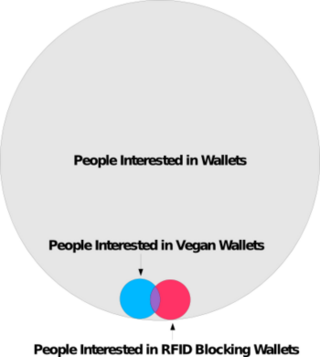I went to a talk today by Sun scientist Susan Landau on Sun’s DReaM/Open Media Commons DRM system that I’ve mentioned in the past. Landau used a variant of these slides to do a rough overview of the Sun system and the problems that it is trying to solve.
Halfway through her talk, Landau showed a slide titled, "Users Matter: Creative Commons." Elaborating, Landau mentioned that she had been talking to a number of people — both at CC and outside — about the possibility of using DReaM to enforce the terms of CC licenses.
I interrupted Landau to point out that CC licenses had an anti-DRM clause that, as far I knew, would make her system unusable on CC content. The CC anti-DRM clause, plus the resistance of the CC and iCommons community to accept parallel distribution language, are why it’s impossible to play CC-licensed works on an unmodified PlayStation or XBox (these systems only play signed disks) — even if you include an unencumbered copy alongside! Landau reassured me that I must be mistaken and that she had talked about DReaM in depth with CC leadership, lawyers, and technical advisory board members and she was sure her system was at least possible. Puzzled, I shut up.
For most of the rest of her talk, Landau talked about fair use and how a DRM system might go about respecting it. In his qualified endorsement of the DRM system, Lessig mentioned that DReaM, "would be implemented to allow individuals to assert ‘fair use,’ and unlock DRM’d content, with a tag to trace misuse." At the time, I had a hard time imagining how fair use could be built into such a system — separating fair from unfair use is remarkably resistant to technical solutions. Even bright light cases like verbatim copies every page of the Encyclopedia Britannica might be fair use if I were to make them into a paper mâché bust of Johann Gutenburg or use them to wallpaper a gallery wall.
Landau’s acknowledged the trickiness around fair use and suggested a compromise:
By default, works might be encumbered in the ways and to the degrees that the copyright holder wish. However, users could petition for an unencumbered "fair use copy" by identifying themselves and then checking some boxes and explaining (briefly) why they think their use for the work qualifies as fair. Once they’ve done this, the system would present the user with an unencumbered, watermarked, and fully traceable piece of media.
Conceivably, requests would be subject to some sort of review (at the very least to prevent automated requests) and non-fair uses of watermarked goods would be strictly tracked. If a "fair use" copy is found in the wild, the watermark would be traced and the originator would be held liable. Of course, anonymous fair use becomes impossible but, as Simson Garfinkel pointed out at Landau’s talk, users may have a right to anonymous speech and to fair use but not to anonymous fair use. "Fair" enough.
It is perhaps important to point out that DReaM does not currently implement this "fair use" system and that, one can only assume, the vast majority of DReaM users (e.g., Hollywood movie studios and their ilk) would have no little interest in giving their users a blanket ability to make "fair use copies" and would in most cases choose not to enable such an option.
But let’s return to the issue of DRM enforcement of CC license terms. While I was initially quite confused by the idea of DRM enforcement of CC license terms, it made much more sense when I looked at the CC anti-DRM clause itself:
You may not distribute, publicly display, publicly perform, or publicly digitally perform the Work with any technological measures that control access or use of the Work in a manner inconsistent with the terms of this License Agreement.
The emphasis (mine) points to the crux of the issue. The CC anti-DRM clause only blocks technological measures that overstep the boundaries set in the rest of the licensee. For the free licenses, that’s a wide boundary that leaves little room for DRM. But as I’ve pointed out before, CC is a lot more than just free licenses.
Landau mentioned that her group was primarily interested in using the DReaM system to enforce attribution and non-derivative work clauses in CC licenses — a wise choice as non-commercial use is hard enough for humans to discern. As a result, the DReaM system might be used to make it impossible to remove attribution from CC works or might block modification to works marked as "ND." The catch that led me to believe that CC license blocked all DRM was the fact that I didn’t think it would be possible for a DRM system to respect fair use. After all, each CC license includes an explicit affirmation that, "nothing in this license is intended to reduce, limit, or restrict any rights arising from fair use."
The question that the possibility of a CC DRM scheme like DReaM hangs on is: to what degree does Landau’s suggestion live up to the fair use legal bargain?
Landau pointed out that a number of lawyers including Pam Samuelson and CC’s technical advisory board and legal staff have been generally positive about her fair use permission-asking compromise. Honestly and on CC’s own terms, it’s hard to see why they wouldn’t be. The loss of anonymous fair use was only ever a right we enjoyed by a fortunate accident. Watermarks are only there to "keep honest people honest." If you are not doing anything wrong, what do you have to hide?
But DReaM enforcement of CC licenses is a bad thing and the bad taste that it inevitably leaves in many commoners mouths is not hard to explain:
- Many commoners are not comfortable with the idea of DRM because it shifts power over users’ computing devices away from the users and makes computers obey the will of a copyright holder. That’s true of DReaM just as much as as it is of Apple iTunes or Microsoft DRM.
- Many commoners are not completely comfortable with all CC licenses, so the idea of technical protection measures enforcing these terms, even those allowing for fair use lines and in line with the will of the author, is seen as dangerous.
To solve the first issue, CC needs a more strongly worded anti-DRM clause — ideally one tied to a parallel distribution clause. To solve the second, we will ultimately need a new banner under which only truly free cultural works will reside.
Susan Landau doesn’t have it easy but she does seem to have the genuine best interest of consumers and users at heart. That’s more than I can say about the vast majority of people in the DRM business. She’s trying to walk a fine line and she’s almost certainly being abused and heckled by folks in the industry who call her "communist" and by folks like me who feel that she’s sacrificing essential principles in an attempt to compromise. The one thing we all agree on is that the ground she’s treading is mine field.
Yet while I sympathize with her, I must speak out against both her and DReaM. A DRM compromise at this stage would be insanity. This is a fight we have to win.


